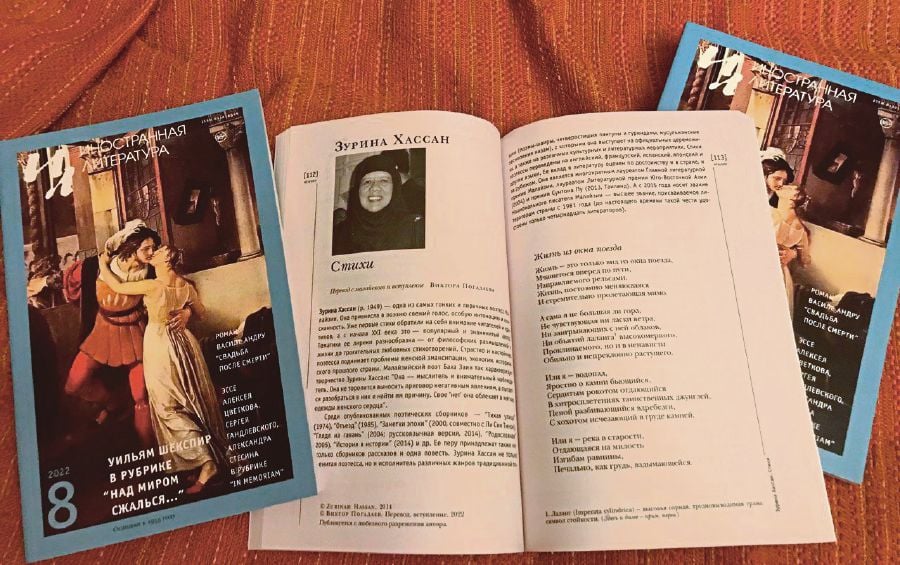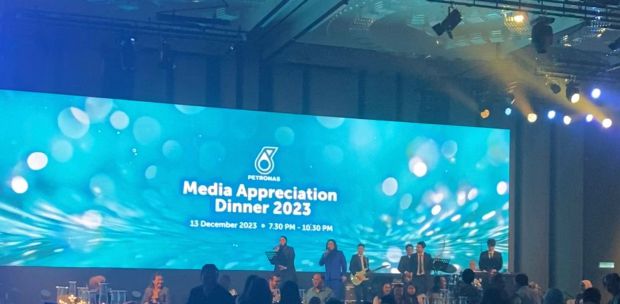One of the oldest and most prestigious literary magazines in Russia is Foreign Literature.
It has been published since 1891 under various titles: Bulletin of Foreign Literature (1928-1930), Literature of the World Revolution (1931-1932) and International Literature (1933-1943).
It comes out monthly with a volume of 288 pages. The international council of the magazine includes prominent writers such as Wang Meng, Matei Visniec, Milan Kundera, Kenzaburo Oe, Robert Chandler and Hans Magnus Enzensberger.
According to Alexander Livergant, current editor in chief, in the Soviet years Foreign Literature was a symbol of "non-existent liberalism in the country".
For Soviet readers, the magazine was the only opportunity to get acquainted with the works of major Western writers, including those whose books were not published in the USSR or were rarely published in separate editions for ideological reasons.
The circulation reached several hundred thousand copies. The magazine has now published J.D. Salinger's novel The Catcher in the Rye, Harper Lee's To Kill a Mockingbird, William Faulkner's The Defiler of Dust, William Golding's The Spire, Gabriel Garcia Marquez's One Hundred Years of Solitude, Yasunari Kawabata's Moan of the Mountain, Edgar L. Doctorow's Ragtime, Stephen King's Dead Zone, Edward Albee's The Death of Bessie Smith and Eugene Ionesco's Rhinoceros, among others.
I tried many times to publish my translations of stories and poems from Malay and Indonesian in this journal and succeeded only three times. Who are the other lucky writers whose translations were published in the magazine?
One is Aziz Deraman with a selection of poems under the general title Old Man's Rosary (2004) and eight Indonesian poets — Taufiq Ismail, Diah Hadaning, Sapardi Joko Damono, Joko Pinurbo, Evi Idawati, Denok Kristianti, Zubaidah Djohar and Toeti Heraty.
In this year's August issue, the magazine published translations of four poems by Malaysian laureate Zurinah Hassan (Life from the train window, Malacca, After watching the series 'Roots' and When I run away from poetry).
Why Zurinah? Because she is one of the finest and most lyrical poets in Malaysia. The editors of Foreign Literature understood this.
She brought her voice, special intonation and sophistication to poetry. The poems have already attracted the attention of readers and critics. The themes of her lyrics are diverse, from philosophical reflections on life to touching love poems.
Passionately and persistently, the poet raises the problems of women's emancipation, ecology and Malaysia's past.
Malaysian poet Baha Zain describes the work of Zurinah as follows: "She is a thinker and an attentive observer. She is not in a hurry to pass judgment on negative phenomena, but tries to understand them and find their cause. She wraps her 'no' in the soft garments of a woman's heart."
Zurinah is not only an eminent poet, but also a performer of various genres of traditional poetry (syair, pantun, gurindam, nazam) at official ceremonies as well as cultural and literary events.
Her contribution to literature is appreciated both in Malaysia and abroad.
She was named the national laureate -— the highest title awarded to the writers of the country — in 2016, making her the first woman recipient. To date, only 14 writers have been given this honour.
She was also the winner of the Southeast Asian Literary Award (2004) and the Sunthon Poo Prize (2013, Thailand).
The first Russian translations of Zurinah's poems were published in Kuala Lumpur by the Malaysian Institute of Translation and Books in 2013.
Now, let's try to guess who next among Malaysian writers will be published in this prestigious literary magazine in Russia.
The writer, writing from Russia, is a former lecturer of Universiti Malaya





